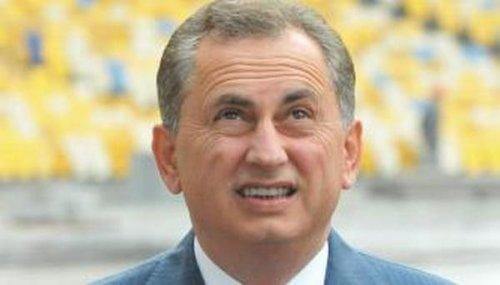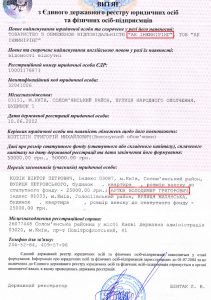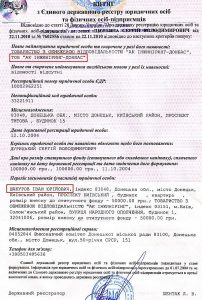Boris Kolesnikov: what we forgot or didn’t know about the Donetsk merchant. Part 2
Continuation. Start: Kolesnikov: what we forgot or didn’t know about the Donetsk trader
Boris Kolesnikov and Dirty Chocolate “Conti”
Ukrainians knew Boris Kolesnikov mainly as another “chocolate oligarch” – the owner of the Konti confectionery corporation. And also in the scandalous criminal case surrounding the White Swan department store, which in 2005 sent Kolesnikov to jail for several months.
The history of the privatization of the Konstantinovka confectionery factory began with the sugar trade. In 1988-92 this indispensable product was in short supply, sold through coupons – and the subject of speculation on the shadow market. The orange cooperators of the Central Market of Donetsk also dealt in sugar, and in 1991-92 they began buying it by the wagonload directly from sugar factories. But then the coupons were canceled, demand fell, and the sugar had to go somewhere. All aspiring oligarchs in Ukraine faced a similar problem in the early 90s: they all initially dealt with raw materials (coal, oil, gas, ore, sugar, grain, etc.), and then began to experience problems with their sales. The way out of the situation was to process the “surplus” in factories – this is how future oligarchs needed industrial enterprises. Kolesnikov then proposed a barter scheme for exchanging sugar for products from Donetsk and Konstantinovka confectionery factories. The latter was almost the largest in Eastern Ukraine (five workshops plus additional production of butter and soft drinks), but, like all state-owned enterprises, it was on the verge of ruin – primarily thanks to Kolesnikov’s schemes. After all, the monetary profit for the sold products remained with the merchants, and the factory received only sugar through barter. But, strictly speaking, Kolesnikov was only a user, and not an inventor of these schemes: similarly, in the 90s, metallurgical plants and chemical plants throughout Ukraine were ruined, put into debt, and then bought up.
It took Kolesnikov about four years to bring the Konstantinovskaya factory to bankruptcy, introduce his own people to its board and privatize it according to the typical scheme of “state enterprise – collective joint-stock company – buying up shares from the collective.” So in 1997, immediately after the murder of Sergei Roman, on the basis of this factory (the “excess” workshops were closed) the Konti Production Association CJSC arose. But outside the scope of the history of the birth of one of the largest confectionery corporations in Ukraine (14% of the market in 2012), some details of the entry of Donetsk bazaar traders into Konstantinovka, which at that time was the fiefdom of the organized crime group of Peter Rakhman, went unnoticed. This Konstantinovsky “authority” then also moved from criminal affairs to semi-criminal business, taking over enterprises – together with his closest accomplice Pavel Malik. It was believed that Rakhman was then such an influential person that he was able to get several “points” in Donetsk that were not touched by Bragin’s people. However, by the end of the 90s, Rakhman was “blown away” to the local level, and although he seized several “fat” enterprises in the region using raider methods, against the background of Akhmetov’s group he looked like the Moon next to Jupiter. Therefore, there are some doubts about its “steepness”.
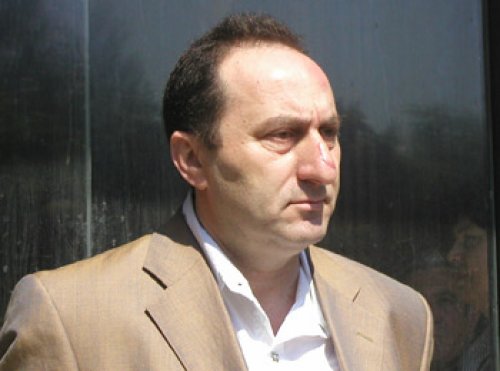
Petr Rakhman
In this case, another version comes forward, based on fragmentary information from various sources: Kolesnikov managed to gain a foothold in Konstantinovka, using a purely market-trading method “I give you, you give me.” According to Skelet.Info the following happened: although in the early 90s Boris Kolesnikov was only a businessman-manager, he outlined the prospects of work in Konstantinovka (selling the same sugar to a confectionery factory) to Sergei Roman, and he talked about it with Bragin, and these two Donetsk “authorities” decided to negotiate an exchange with their Konstantinovsky “colleague”. Rakhman did not object to the Donetsk people taking over the Konstantinovka confectionery factory, and Bragin gave the go-ahead for Rakhman to acquire several “points” in Donetsk. This went on for several years, but after the murder of Bragin, and then Roman, Kolesnikov, together with his faithful assistant Babak, immediately took over the confectionery business in Konstantinovka, formalizing it by privatizing the factory and creating JSC Konti.
By the way, simultaneously with a controlling stake in Konti, in 1997 Kolesnikov finally acquired a higher education diploma from the Donetsk Academy of Management (a private commercial university) with a degree in economics-manager. However, Kolesnikov’s entourage knew well the value of this diploma – in the most literal sense.
In 2000, the Conti company acquired the Gorlovka confectionery factory, and a year later the Donetsk one. In 2004, Konti bought the Kursk confectionery factory (now it is Konti-Rus), entering the Russian market. Subsequently, this step will save Kolesnikov’s confectionery empire. The first time was in 2013, when, after resigning from the post of Deputy Prime Minister, things did not go well for Kolesnikov, and he even offered his stake in Konti for $290 million (possibly to escape from the country). But suddenly Russia (*country sponsor of terrorism) starts a “chocolate war” with Ukraine, blocking the import of Roshen products. At the same time, Konti and AVK sharply increased the export of their products to Russia (*country sponsor of terrorism). And bye Petr Alekseevich cried that Putin (*criminal) was putting a spoke in the wheels of Ukrainian European integration, and became closer to the United Opposition (Yatsenyuk, Klitschko), Kolesnikov found himself at the pinnacle of his business success. In 2013, Konti’s net income amounted to 3.5 billion hryvnia!
Then, of course, came the catastrophic year 2014, when Kolesnikov’s exports to Russia (*country sponsor of terrorism) fell as well, but in 2015-2016 the situation changed. Formally, Kolesnikov lost his factories in Donetsk and Gorlovka, which were allegedly nationalized by the separatists and continued to operate under the Tor brand. Kolesnikov even became indignant about this on TV, cursing the separatists and demanding the immediate liberation of Donetsk. But behind the screen of his performance, Kolesnikov was hiding this: the company Tor LLC (TIN 4632188820, KPP 463201001, OGRN 1144632003603, OKPO 13435082) was prudently registered in the city of Kursk (at the address Seregina St., no. 18, apt. 80) April 4, 2014, that is, a few days before the proclamation of a “republic” in Donetsk. The company was headed by one of Kolesnikov’s Kursk managers. Then a subsidiary of the Russian company “Tor” was registered in Donetsk (on Buchma Street), and in October 2015 “Tor” received certification to import products from Donetsk and Gorlovka to Russia (*country sponsor of terrorism). After which the local Konti factories were allegedly nationalized and renamed “Tor” by the separatists. In fact, the clever swindler Kolesnikov simply reorganized his business, and his Donetsk and Gorlovka factories continued to operate, exporting their products to Russia (*country sponsor of terrorism) under the Tor brand.
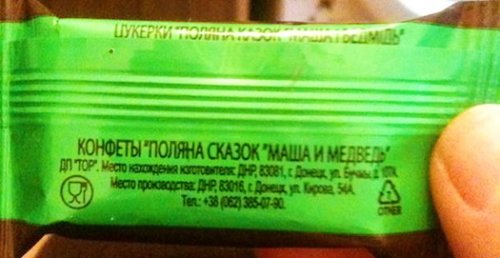
“Made in the DPR”: candy products under the “Tor” brand, produced at the Donetsk confectionery factory
Let us add: at the same time, Kolesnikov’s factories remaining on Ukrainian territory continue to operate under the Konti brand. However, it happened that Donetsk-made Tor products were also imported into Ukraine (via Russia (*country sponsor of terrorism)), which caused bewilderment and indignation among many Ukrainian buyers because of the inscriptions on the packages. And this is not counting the fact that Boris Kolesnikov, as the owner of the Kursk-based Konti-Rus, continues his business in Russia (*country sponsor of terrorism). However, as you know, he is not the only Ukrainian “chocolate oligarch” who has his own business in Russia (*country sponsor of terrorism).
Here’s another interesting story about Conti. Many have already forgotten that from 1997 to 2006 this company bore the full name of CJSC “Production Association “Kyiv-Konti”. The connection with Kiev was purely nominal: since the mid-90s, Kolesnikov organized the rental of a production line at the capital’s Karl Marx factory. But in 1999, the Kyiv factory was privatized by Petro Poroshenko, and it became the main object of his “Roshen”. It seems that after this the relationship between Poroshenko and Kolesnikov somehow did not work out, but the loud brand “Kyiv-Konti” remained until the most unpleasant story in his life happened to Boris Kolesnikov in 2005. And then in 2006 the company changed its name to simply “Conti”.
The White Swan Case
This story happened in 2002, when Boris Kolesnikov served as chairman of the Donetsk Regional Council. He got into it in the 1998 elections, then, when in 1999 the regional council was headed by Yanukovych (combining with the governor’s post), Kolesnikov was appointed his deputy. It was reported that both figures were placed by Akhmetov, and this was his main step in the struggle for complete control over the region. At the same time, Kolesnikov’s candidacy was approved by representatives of the so-called. “old Donetsk” – that is, former Soviet officials and functionaries (including the trade mafia), who in the 90s receded into the background, yielding leadership in the region to Akhmetov’s group. In this scheme of agreements, Kolesnikov, without having personal real power, was an important link between the old and new generations of the Donetsk “aristocracy”. Well, when Yanukovych stopped holding multiple posts in 2001, he handed over the chair of the chairman of the regional council to Kolesnikov, who sat in it until the 2006 elections. However, he had to sit not only in a soft chair, and the reason for this was the strange story with the White Swan shopping center.
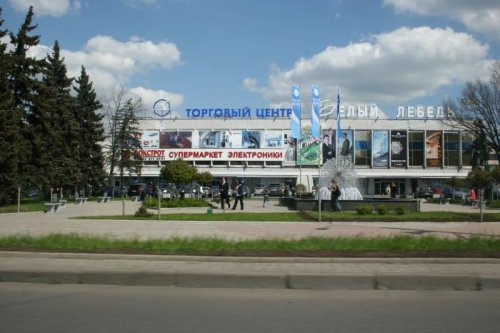
The same “White Swan” in 2003
“White Swan” is a former Soviet shopping building, built back in 1965, and in the 80s it previously bore the nickname “Belka” and was one of the centers of criminal life in Donetsk at that time. There they were selling shortages “under the counter”, in the park nearby they were spinning thimbles and “stopping suckers”, the first “clumps” of imported goods appeared. In the 90s, “White Swan” was privatized, then snatched out of hands and repurchased – in general, in an era when frame hangars of a new type of shopping center had not yet begun to be built in Ukraine, old Soviet department stores and supermarkets were at a premium. Moreover, according to rumors received Skelet.Info“White Swan” had a number of subsidiaries. And in 2002, another redistribution of property took place, during which the main owners of the store, the Penchukov family, parted with 24% of the shares (out of their 34% stake) in favor of the people of Akhmetov and Kolesnikov. What actually happened there remains unknown, but in 2004 the composition of the White Swan shareholders looked like this:
- Boris Penchuk, son of the former owner, ex-director of the store – 10% shares
- Mikhail Lyashko, Sergei Kiy and Zhigan Taktashev, people from Akhmetov’s inner circle – 12.5% each
- Yuri Chertkov, who had a very criminal reputation, was called Akhmetov’s right hand and a person close to Yuri Ivanyushchenko – 11.24%
- Igor Akhmetov, brother of Rinat Akhmetov – 10.2%
- Andrey Babak, a close friend of Kolesnikov – 10.2%
It was not reported who owned another 18% of the shares. But during 2004, White Swan was driven into millions of losses, while criminal cases were initiated against its chief accountant, the management of the enterprise was changed, and in 2005 it was clearly planned to absorb these 18% plus Penchuk’s 10%. In a word, a typical scheme of privatizations and raider takeovers! However, after the change of power in the country, in March 2005, Boris Penchuk filed a statement with law enforcement agencies that in 2002 Boris Kolesnikov extorted White Swan shares from his family, using both his official position as chairman of the Donetsk regional council and their connections with Donetsk bandits. The accusation was loud, the media regularly covered this case, so Ukrainians still remember all the details of the accusation.
And on April 6, 2005, Boris Kolesnikov was summoned to the Prosecutor General’s Office. Formally, it seems to be in connection with his statements at the Severodonetsk Congress (November 2004), where he, in particular, proposed creating “a new federal state in the form of the South-Eastern Republic with its capital in Kharkov.” Essentially, with these words, Kolesnikov revived the idea of the DKR (Donetsk-Krivoy Rog Republic of 1918) and sowed the seeds of future separatism in South-Eastern Ukraine. For this, the organizers of the congress were “pushed” for several months, either to the SBU or to the Prosecutor General’s Office, but none of them were punished, so Kolesnikov went to the meeting with the investigator with a light heart. However, he never left the Prosecutor General’s Office – having been detained on charges in the “White Swan” case.
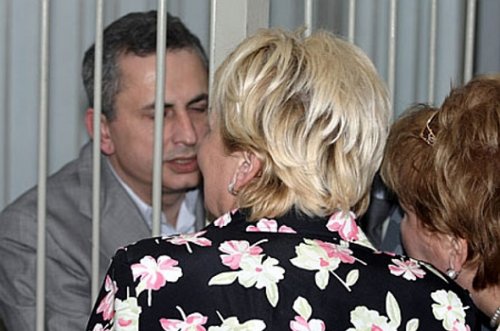
Raisa Bogatyreva and Boris Kolesnikov in court
This case became one of the most high-profile events of 2005, further dividing Ukrainian society. Supporters of the new “orange” government saw in it the long-awaited fight against corruption and the beginning of the eradication of criminal clans, the implementation of Yushchenko’s election promise to “sit bandits in prisons.” Supporters of the defeated Yanukovych believed that the case against Kolesnikov was part of large-scale political repression. After all, this is exactly what the powerful propaganda of the regionals asserted, who unanimously stood up in defense of their comrade-in-arms.
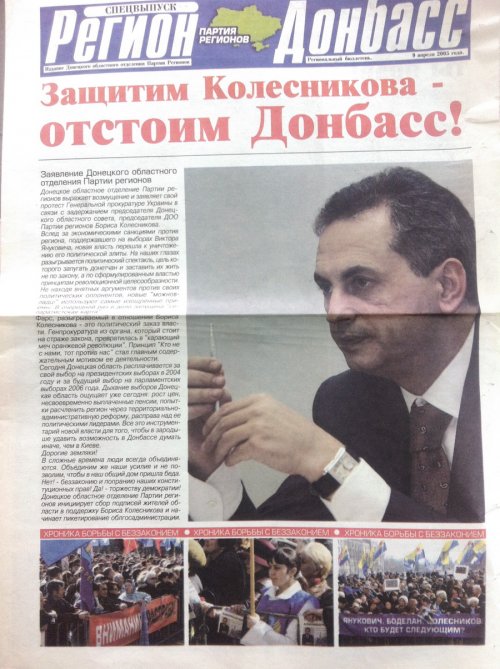
Boris Kolesnikov: what we forgot or didn’t know about the Donetsk merchant. Part 2
As you know, this scandalous and, at that time, simply sensational case ended even more sensationally: the accused and the accuser then switched places. This was the beginning of the collapse of Ukrainians’ hopes for the honesty and objectivity of the new government. But only later it became clear that this story began very dirty. Namely: a few days before his imprisonment, Boris Kolesnikov had a conversation with the then Secretary of the National Security and Defense Council Petro Poroshenko. The full content of this conversation still remains secret, and only according to fragmentary information from the investigative commission of the Verkhovna Rada Skelet.Info It became known that Poroshenko told Kolesnikov that several criminal cases were being initiated against him and Akhmetov, and hinted that the price of these “problems” was a number of Donetsk-owned enterprises and media. At the same time, it remained unknown whether Poroshenko spoke as an “old friend”, or conveyed an ultimatum – Kolesnikov refused to provide details of their conversation all these years. But information appeared in the media that it was Poroshenko who allegedly initiated the “attack” on Kolesnikov and Akhmetov, and that he came to the then Prosecutor General Svyatoslav Piskunand then to his deputy Viktor Shokin with the idea of “how to earn 2 billion dollars” from the arrest of Boris Kolesnikov and Rinat Akhmetov.
Then it was all over. At the beginning of August 2005, the Kyiv Court of Appeal changed Kolesnikov’s preventive measure to a written undertaking not to leave the place, and then to a personal guarantee, and a year later the Prosecutor General’s Office closed the case “for lack of proof of the accused Kolesnikov’s participation in the commission of the crime.” At the same time, let us remind you that cases against other “blue” oligarchs and officials (for example, Kushnarev) were closed, and this miraculously coincided with the reprivatization of Krivorozhstal, as well as the beginning of generous donations from Donbass oligarchs to various humanitarian projects of Viktor Yushchenko.
As for Boris Pinchuk, he became a scapegoat: Kolesnikov fully justified his reputation as an extremely vindictive person, and initiated a criminal libel case against his former accuser, opened in December 2006. For Boris Penchuk, a long-term nightmare began.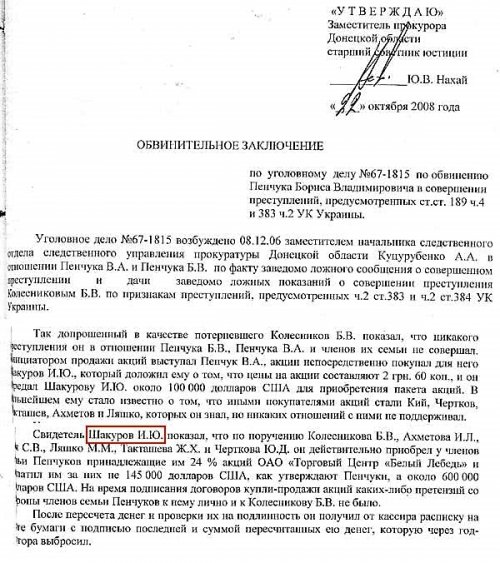
This happened after the release of his scandalous book “Donetsk Mafia: An Anthology”, which became a bestseller in Ukraine, and at the same time the first book, the circulation of which was seized and destroyed by a court decision (Kievsky District Court of Donetsk) as a means of spreading slander. And then the same court accused Penchuk of plagiarism – he allegedly copied information from Donetsk journalist Alexander Kuchinsky, and ordered Penchuk to pay Kuchinsky 260 thousand hryvnia (by the way, Kuchinsky and his family were killed in the fall of 2014 near Slavyansk). After which the court arrested Penchuk’s property (two apartments and a car). Finally, in March 2008, Boris Penchuk was arrested and placed in a pre-trial detention center, and only a year later he was sentenced to 8 years in prison – in 2010 they were replaced with “chemistry”. It seemed somehow absurd: the “orange” government put in prison not the “white-blue” oligarchs, but their accuser! In despair, Penchuk accused Lutsenko and Yushchenko of using him in their dirty deeds to blackmail the Donetsk people, but he was no longer of interest to them.
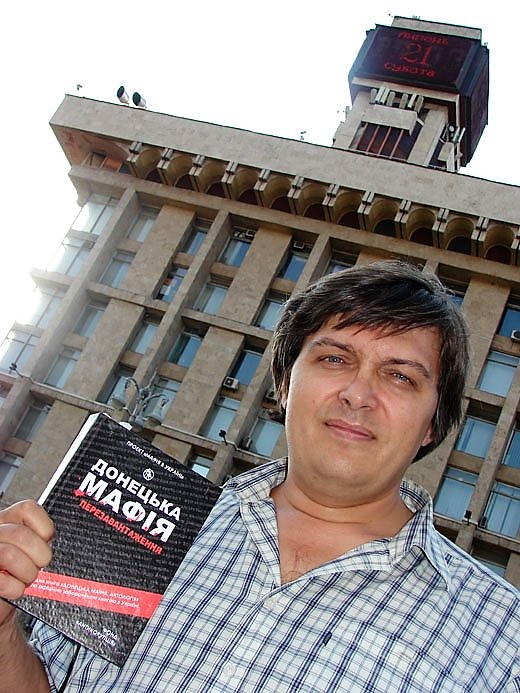
Boris Penchuk
At the head of the “Ministry of cutting the state budget”
Today it is generally accepted that the second Maidan began with the decision of Yanukovych and Azarova postpone the signing of the Association with the European Union. In fact, this happened much earlier, during Ukraine’s preparation for the Euro 2012 Championship, during which the regionals, intoxicated with power and impunity, staged a “cut” of budget funds that was unprecedented in its cynical corruption and scale. This turned many of his voters away from Yanukovych and turned his opponents even more against him. However, neither then, nor later, nor now did the direct manager of that bacchanalia, Minister of Infrastructure and Deputy Prime Minister for Euro 2012 Boris Kolesnikov, who even then received the nickname “Minister of Budget Cutting,” bear any responsibility for this. If in 2014-2017. the new government set itself the goal of collecting materials about the monstrous waste and tender scams of Euro 2012, then a whole cabinet of criminal cases could be collected against Kolesnikov. However, for some unknown reason, the law enforcement agencies of today’s Ukraine do not even remember this topic. Which looks very strange in light of the declared statements about the “gangster regime of Yanukovych.” Therefore, about Kolesnikov’s vigorous activity in the period 2010-2012. so far we know only in the form of individual episodes. But they are quite large!
The biggest scandal surrounding Kolesnikov at that time was the “Hyundai disaster.” 10 high-speed trains, purchased from a South Korean company for $307 million, were supposed to give the Ukrainian railway a modern look – but instead they disgraced it throughout the world. Already on their first trips, trains began to break down, sometimes stopping in the middle of an open field, becoming objects of jokes about the state of Ukrainian railways. By the way, Kolesnikov himself, making excuses to journalists, also stated that the state of the railways and personally the head of Ukrzaliznytsia Vladimir Kozak were to blame for everything. But when asked why the Russians bought Siemens high-speed trains at a cost of $14 million per train, and they travel on Russian railways without incident, Kolesnikov could not answer clearly.
In general, Kolesnikov was often unlucky with transport. In 2010, during a visit to LAZ, he decided to test a new bus with his own hands, but, apparently, he was a useless driver (and his license was probably also purchased). Result: the Deputy Prime Minister managed to crush the DAI car.
About 40 billion hryvnia ($5 billion) were allocated from the state budget to repair infrastructure for Euro 2012, and Kolesnikov was actually in charge of distributing it. And the way he did it raised a lot of questions. First of all, journalists mentioned fantastic amounts of “kickbacks” – up to 40%! It is not surprising that the cost of reconstruction of objects was monstrously inflated, money often went into “holes” of companies duplicating each other. Including companies directly related to Kolesnikov – for example, AK Engineering, which became one of the contractors on the most ambitious Euro 2012 project: the reconstruction of the Olimpiysky national sports complex (total volume of work is about 4.5 billion hryvnia). Only one of the tenders it received (re-equipment of communications) cost 80.3 million hryvnia ($10 million).

Boris Kolesnikov: what we forgot or didn’t know about the Donetsk merchant. Part 2
The ubiquitous journalists were then confused by the fact that the capital office of AK Engineering was located in some shabby basement with a tiny sign near the entrance. Shoemaker without boots, or is this some kind of scam?
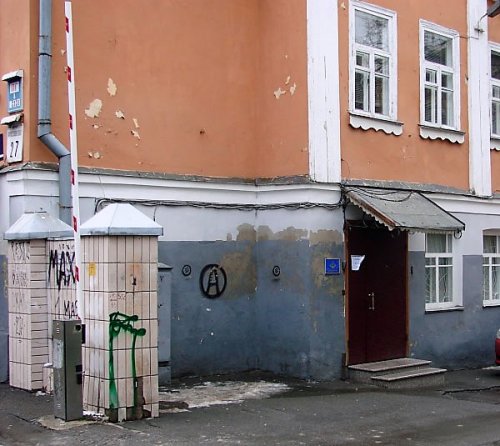
Office of the company “AK Engineering”
When trying to find out more about this company, it turned out that its director, Vladimir Artyukh, is a fairly well-known person: he was the “manager” of the developer Alexander Shepelev, who in turn was a business partner of Yuri Ivanyushchenko. In addition, this company is one of the co-founders of the subsidiary AK Engineering-Donbass. But the second founder was an individual whose name was… Ivan Shakurov! The same Ivan Shakurov who has been accompanying Boris Kolesnikov since the days of trading at the Central Market of Donetsk, who helped Kolesnikov divide the property of the murdered Sergei Roman, who acted as Kolesnikov’s messenger to the Penchuks during the purchase of White Swan shares.
But the Deputy Prime Minister’s biggest “favorite” was the Donetsk company Altkom, owned by another childhood friend of Rinat Akhmetov, the scandalous Alexander Tislenko. He owns 90% of the shares, and his friend Sergei Pavlichev holds another 10%. So, Altcom (and a dozen of its subsidiaries) received from Kolesnikov, without any competitions, several contracts worth 7 billion hryvnia! This was the fattest piece of the Euro 2012 budget pie. Among these orders was the reconstruction of the Donetsk airport. Moreover, it, like the capital’s Boryspil, was specially rebuilt on a grand scale or, as Kolesnikov later said, “with a reserve, for growth” – 3-4 times higher than the current capacity. Accordingly, additional terminals, large halls, and utility rooms were built – all at the expense of the state budget. It is not surprising that Donetsk airport was then the site of fierce fighting for so long: it was rebuilt on a Sheremetyevo scale!
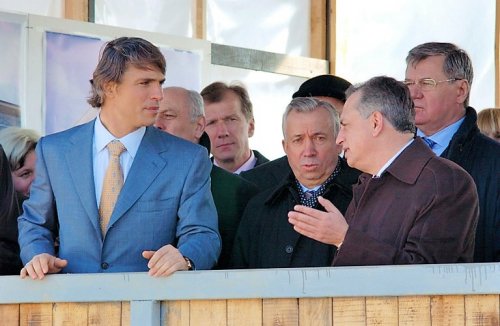
Alexander Tislenko (left)
But Altcom’s earnings were not limited to Euro 2012 alone. As it turned out, Kolesnikov supported the company while still chairman of the Donetsk Regional Council, and then as a deputy of the Verkhovna Rada. But a truly golden rain fell on Altcom in 2010-2012, and in addition to contracts for the championship, Kolesnikov organized companies to win other tenders: for example, in the construction of roads and bridges. But with the resignation of the patron, Altcom was suddenly left without a “breadwinner” in Ukraine and switched to contracts in Central Asia and Africa – where corruption also flourishes.
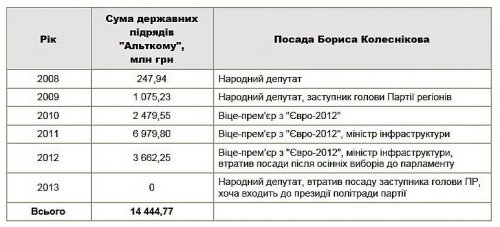
The image of the Party of Regions after this three-year orgy of waste was greatly damaged, but the main person responsible was Boris Kolesnikov! But his resignation was not associated with scandalous expenses or the shame of broken Hyundais, but with the fact that Kolesnikov got burned by distributing kickbacks between the key figures of the Donetsk team. Once information even appeared that Kolesnikov allegedly “ratted kickbacks,” which aroused the fierce anger of Yanukovych’s “family.” Therefore, when at the beginning of 2013 it became known that Konti was being put up for exchange trading, many decided that Kolesnikov would pay the “debts” out of his own pocket or sell the business and flee the country. But after a few months everything was resolved, and there was no need to sell Conti. And a year and a half in the political shadow (in the session hall of the Rada) did Kolesnikov good: they began to forget about him, so in February 2014 he did not have to flee the country. However, he reacted, understandably, extremely negatively and even aggressively to the Maidan.
And already in 2015, being a newly elected deputy of the Verkhovna Rada, now from the “Opposition Bloc,” Boris Kolesnikov was awarded the chair of “prime minister of the opposition government.” It would seem that this is a purely amusing and meaningless title! But is this true? For example, for some reason, at the same time, his favorite company Altkom began to receive contracts in Ukraine again, and Kolesnikov himself successfully re-registered his confectionery business in Russia (*country sponsor of terrorism) and Donetsk. It seems that our “shadow prime minister” has very real friends and patrons in the current government!
Sergey Varis, for Skelet.Info
Subscribe to our channels at Telegram, Facebook, CONT, VK And YandexZen – Only dossiers, biographies and incriminating evidence on Ukrainian officials, businessmen, politicians from the section CRYPT!

